CASCO — Camp Sunshine is unusually quiet this time of year, snug beneath a blanket of snow for the second winter in a row.
Typically in February, dozens of families would be sledding or ice skating or swimming in the camp’s indoor pool – savoring a precious respite from the challenges of life-threatening childhood illnesses at the edge of now-frozen Sebago Lake.
The 25-acre wooded campus has been dormant since March 2020, when COVID-19 closed the facility. In normal times, the campus operates year-round, hosting about 750 families free of charge each year from all over the United States and the globe. The camp began offering online programs during the pandemic but hopes to invite families back in person this summer.
In the meantime, it has taken advantage of the closure to do more than $400,000 in major renovations to its main building, the Viterbi Family Activity Center. And thanks to a wide network of donors and volunteers, the overhaul will cost only $130,000 because contractors and others have stepped in to donate a large portion of the labor and materials.
Built in 2001, the 30,000-square-foot building houses the pool, a medical clinic, activity rooms, administrative offices, a dining hall with a commercial kitchen and an entertainment hall with a stage. Now, it has a new heating and air conditioning system, new windows throughout, a half-wall installed between the dining and entertainment spaces, and three touchless stations for filling water bottles.
This month, worn vinyl tile flooring was removed throughout the building and super-durable, easy-to-clean epoxy flooring is being installed.
“These things were scheduled to be done over time, squeezed in during the shoulder seasons,” said Anna Gould, a Camp Sunshine founder and board chair. “But I figured what the heck, why not turn lemons into lemonade and get these projects done now? Revitalizing the building is critical to continuing our mission.”
The camp was founded in 1984 by Gould and her former husband, the late Lawrence Gould, who died in 2015 at age 84. At that time, she described him as its driving force.
“We worked hard on this camp,” she said. “Larry was tireless in making it come to fruition. This was really a labor of love for him.”
Initially, camp programs were held each spring and fall at Point Sebago, the seasonal family resort that the Goulds bought in 1973. They donated land next door for the permanent campus, which opened in 2001 and includes a variety of outdoor gathering spaces, playing fields and hotel-like accommodations for families and volunteers.

While staying at Camp Sunshine, children make “wish boats” during arts and crafts sessions. At the end of their stay, they launch the boats on Wish Boat Pond, each carrying a candle, and they make a special wish. Photo courtesy of Camp Sunshine
Through the years, the camp has welcomed more than 60,000 ill children, siblings and parents from all 50 states and 27 countries. It features 24-hour onsite medical and psychosocial support, as well as bereavement sessions for families who have lost children to illness.
The camp serves families of children diagnosed with cancer, retinoblastoma, brain tumors, kidney disease, sickle cell disease and other hematologic and immune disorders, with specialized programs for children who have other serious illnesses or have received solid organ transplants.
Camp Sunshine typically offers about 24 sessions per year, each lasting three to five days, with accommodations for up to 40 families and 30 volunteers at a time. Programs include arts and crafts, swimming, kayaking, toasting marshmallows, rock climbing and other sports, with separate activities for families and parents on their own.
“It’s a happy place, contrary to what people might think,” said Mike Katz, executive director, who has been with the camp since 1984. “You gain an appreciation for life and what you have.”
Children participate in activities by age group, which gives them the opportunity to share common ground and form lifelong friendships, whether or not they are ill.
“Often you can’t tell the difference between the kids who have an illness and the siblings who don’t. Siblings thrive at Camp Sunshine because they get so much attention and they meet other kids with similar experiences,” said Gail Toth, who first came to Camp Sunshine in 1996, when her daughter was recovering from liver cancer, and has volunteered every year since.
Camp Sunshine was able to connect via Zoom with 660 families last year, including 316 new families.
Online programs have included drawing lessons, yoga classes, illness-specific discussion groups and favorite events such as a talent show, bonfire marshmallow roast and special video presentations. Families are sent a “Box of Sunshine,” which contained materials to participate in crafts, cooking projects and other virtual programs.
The Feeleys of Berwick are among the families that have spent time at Camp Sunshine both in person and online. They first went in 2018, after their daughter Shea had a brain tumor removed when she was 12 years old. Once a strong swimmer who played both piano and violin, she was left with diminished hearing, vision, balance and stamina and epileptic seizures.
“She had a lot of side effects,” said her father, Ryan Feeley, who is assistant head of school at Berwick Academy.

Ryan and Christine Feeley of Berwick with their daughter Shea at Camp Sunshine in 2019. Photo courtesy of Ryan Feeley
Feeley said the camp gave him and his wife, Christine, a chance to connect with other parents, and let Shea and her two older brothers meet other kids their age, all while having fun.
“I like all of the different options of things to do, like archery, the climbing wall and being able to swim in a pool and a lake,” said Shea Feeley, now 16 and a sophomore at Noble High School. “Most of all, I like the chance to be with people who understand what I’ve been through.”
Her father was stunned when she made it all the way to the top of the climbing wall.
“She kept saying, ‘I want to be a normal kid’ and Camp Sunshine allowed her to do that,” Feeley said. “Camp Sunshine was a really powerful experience for all of us.”
The Feeleys returned to the camp in 2019 and joined in online programs in 2020 and 2021.
“It wasn’t the same, but under the circumstances, it allowed us to stay connected to that community,” Feeley said. “We’re absolutely looking forward to returning to Camp Sunshine this summer if we can.”
Katz, the camp’s executive director, said that will depend on expert recommendations, from sources including the U.S. Centers for Disease Control and Prevention and the camp’s medical advisers. The camp will take all precautions necessary to ensure the health and safety of the families, he said.
“The challenges of running the camp are greatly increased when you’re dealing with immune-compromised children,” Katz said.
When the camp is open, it relies on about 2,500 volunteers to operate, including activity coordinators, food service workers, lifeguards and maintenance staff.
When Gail Toth and her husband, Bill, of Vienna, Virginia, first came to the camp in 1996, their 2 1/2-year-old daughter Jennifer had recently undergone chemotherapy and surgery for a rare liver tumor. They have returned every year since to volunteer as a family, including Jennifer, now 29 and a nurse practitioner in a pediatric outpatient oncology clinic, and their daughter Julianna, 18.

The Toth family volunteering at Camp Sunshine in 2016, something they’ve done every year since Jennifer first went there in 1996, after she was diagnosed with and treated for a rare liver cancer. From left, Julianna, Jennifer, Bill and Gail Toth. Photo courtesy of Gail Toth
They also started an annual polar dip in Virginia 14 years ago that has raised more than $900,000 to send other families to the camp.
“It’s literally our favorite place on Earth,” Gail Toth said. “We’ve made lifelong friends with families, volunteers and staff there.”
Toth described it as “a happy place,” where families have a chance to get away from doctors, medical tests and other challenges of living with often devastating illnesses. For volunteers, it’s a joyful, life-affirming experience.
“Volunteering at Camp Sunshine is really the highlight of our year,” she said. “We’re hoping to get back there this summer because our year just doesn’t seem complete without it.”
Jake Andrews also is looking forward to volunteering at Camp Sunshine this summer. He is president of Saulnier Epoxy Floors, a family-owned Massachusetts company that is installing new flooring throughout the camp’s main building this month.
Andrews took the job after Anna Gould reached out through a family friend. He agreed to do the $250,000 project for $100,000, with epoxy flooring materials donated by Sika Corp. He’s providing labor at a significant discount.
“I came up here and was inspired by what they do here,” Andrews said. “It’s something I wanted to be a part of.”
His crew is installing more than 18,000 square feet of flooring that’s expected to save the camp thousands of dollars in annual maintenance costs and pay for itself in three to five years.
Andrews said that when he was a boy, he benefited from others helping him overcome dyslexia, a learning disability. The flooring project provided an opportunity he had been looking for.
“I had always wanted to be in a position to help others,” Andrews said. “Floors aren’t the most exciting part of any building, but this is a special place. And with COVID, there are so many negative things going on, what’s happening here is truly amazing.”
Copy the Story LinkSend questions/comments to the editors.

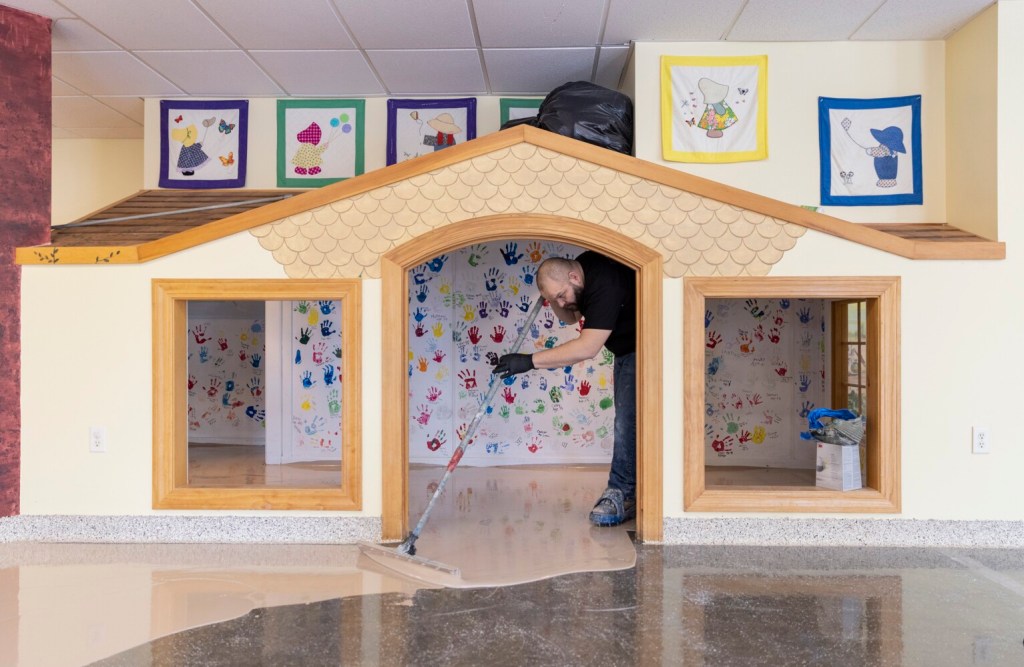
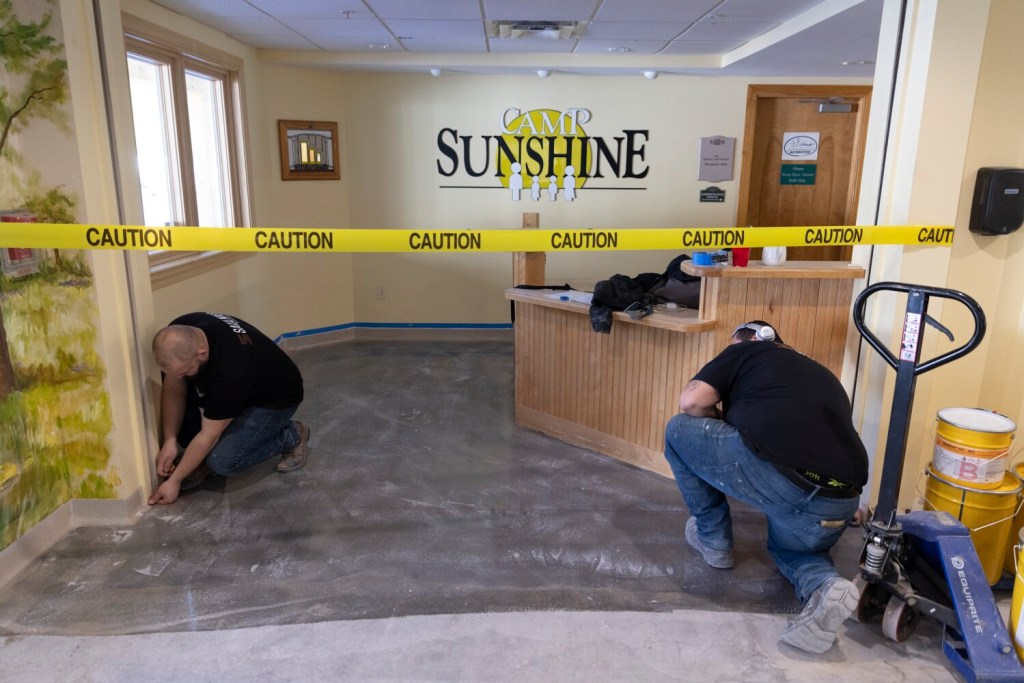
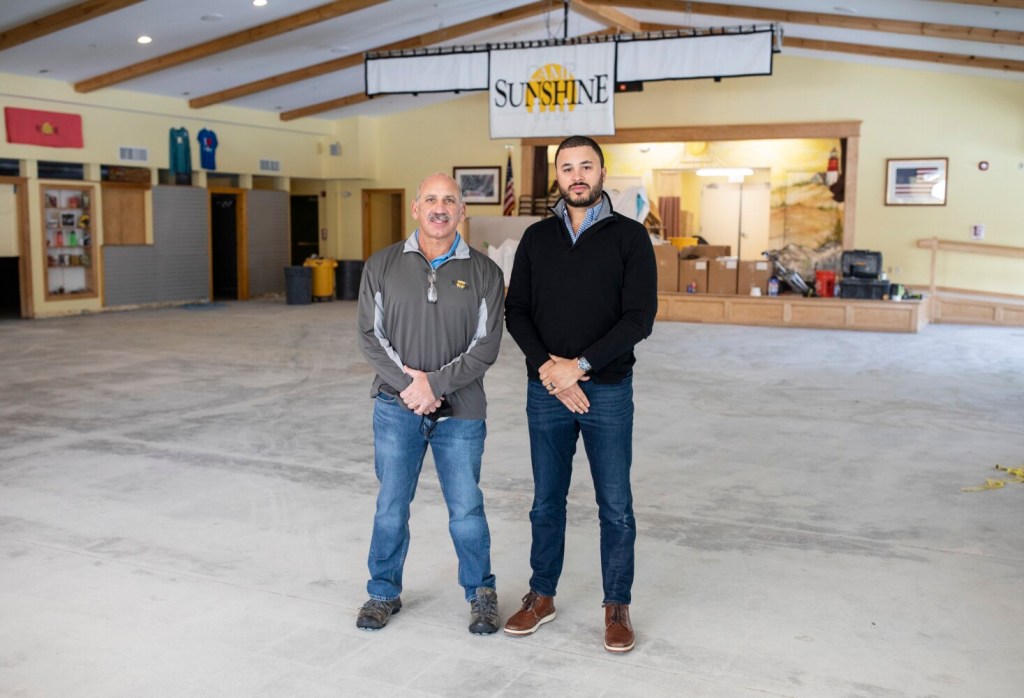
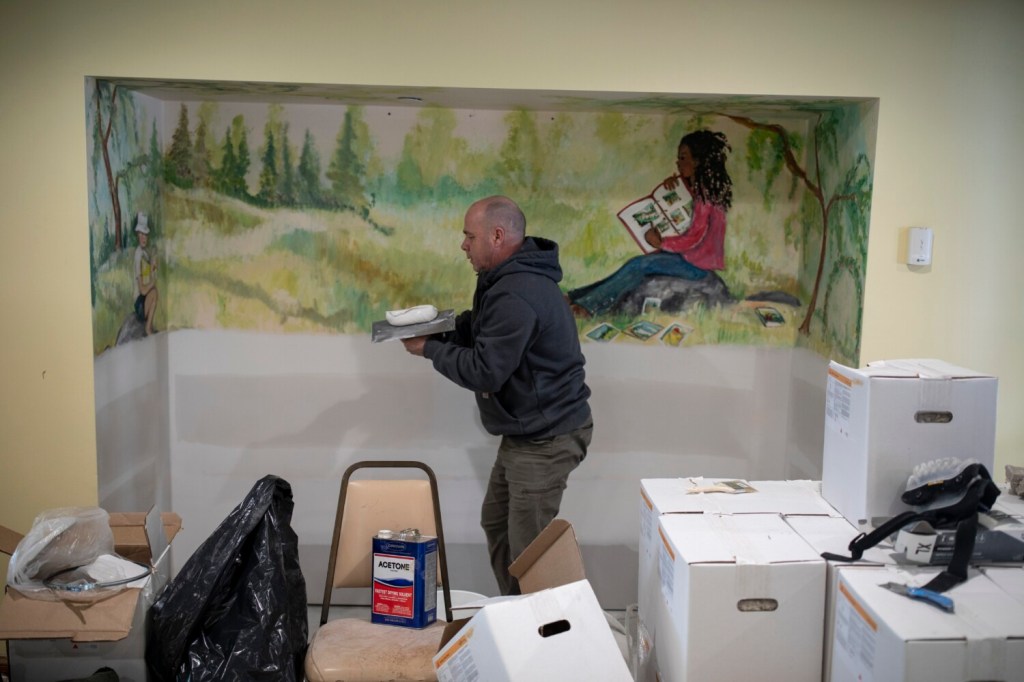
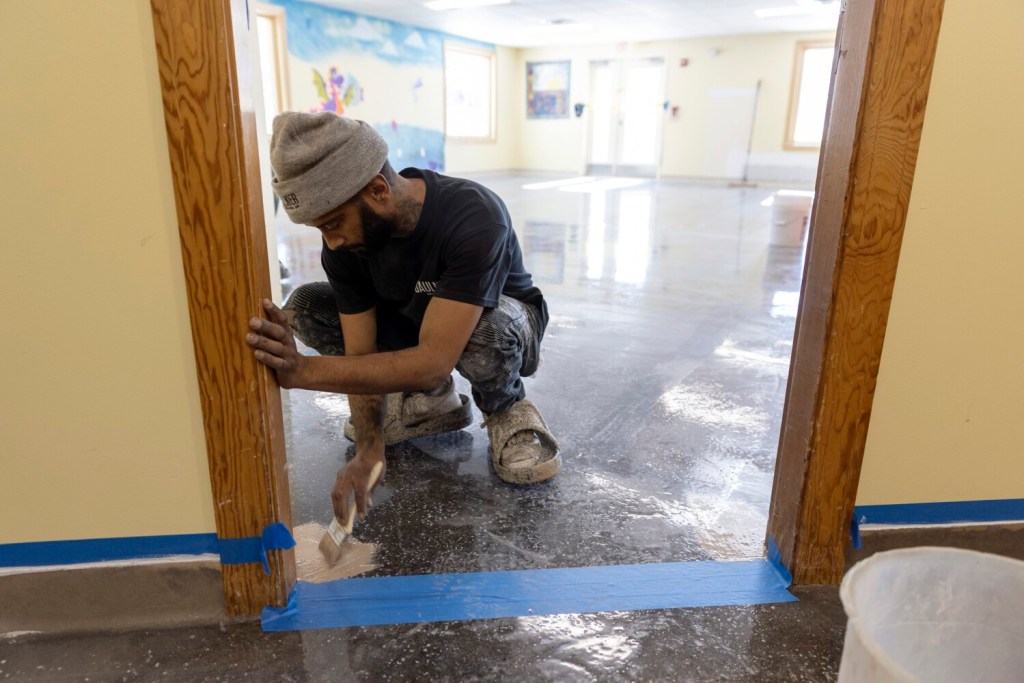
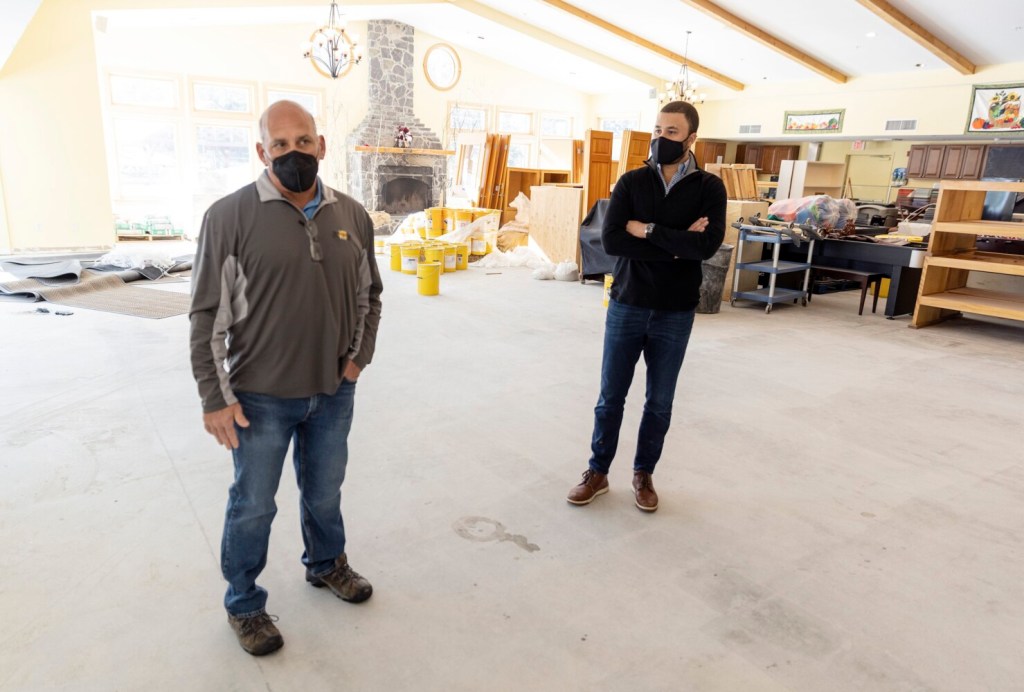
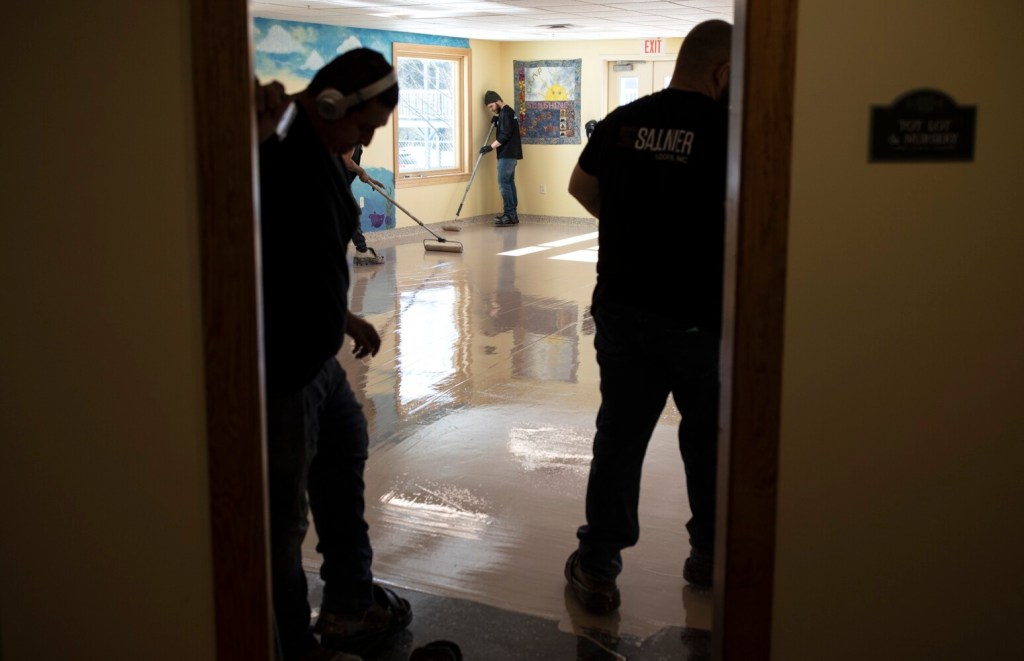
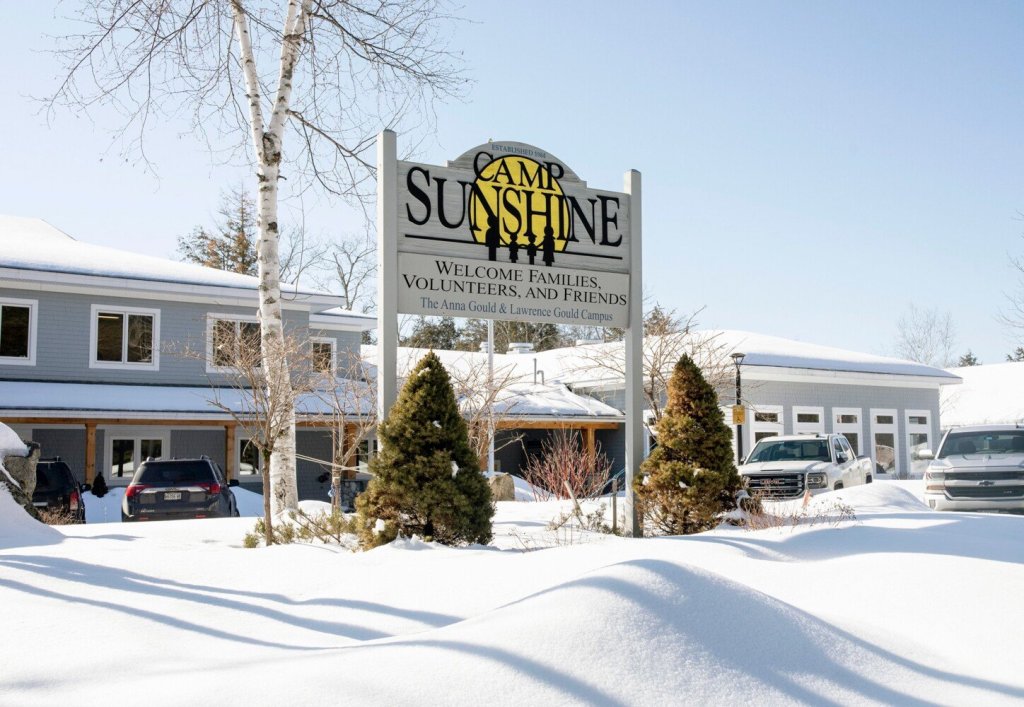

Success. Please wait for the page to reload. If the page does not reload within 5 seconds, please refresh the page.
Enter your email and password to access comments.
Hi, to comment on stories you must . This profile is in addition to your subscription and website login.
Already have a commenting profile? .
Invalid username/password.
Please check your email to confirm and complete your registration.
Only subscribers are eligible to post comments. Please subscribe or login first for digital access. Here’s why.
Use the form below to reset your password. When you've submitted your account email, we will send an email with a reset code.